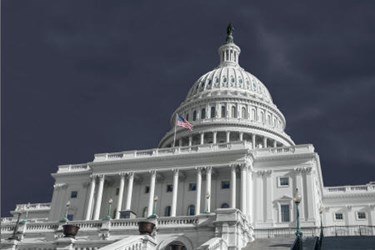Retailers Oppose Elimination Of The Durbin Amendment

By Christine Kern, contributing writer

Financial Choice Act would hurt retailers if passed.
Retail trade groups have expressed strong opposition to the Financial Choice Act introduced to Congress by House Financial Services Committee Chairman Jeb Hensarling (R-TX) last week. The legislation sets the stage for major gutting of bank reforms and other financial regulations put in place after the financial collapse of 2008.
At issue is a portion of the Dodd-Frank reform act that limits debit card swipe fees. Retailers argue that eliminating the Durbin Amendment would hurt consumers and retailers, especially smaller businesses. The amendment, championed by U.S. Sen. Dick Durbin (D-IL), limits the fees that credit card companies can charge for transactions through retailer point-of-sale systems. The Federal Reserve, the agency regulating the fees, capped them at 24 cents, which retailers have called “significant savings” over unregulated fees, but argue still aren't low enough.
According to a summary of the bill released by the House Financial Services Committee, The Durbin Amendment “is based on the false premise that interchange fees are the result of a monopoly that requires government intervention,” and its mandate is “unworkable, vague, and “unnecessary because there is no monopoly,” The summary asserts, “The mandate is also misguided because it inserts Congress and federal agencies between private parties engaged in a dispute over the contractual amounts that should be paid for services. The only branch of government that arguably has a legitimate role to play in this circumstance is the judiciary, which is authorized to resolve contractual disputes between parties based on federal law, precedent, and the particular facts of the case.”
In response to the introduction of the legislation, the Retail Industry Leaders Association (RILA) strongly voiced its opposition. Austen Jensen, Vice President of Government Affairs and Financial Services for RILA, asserted, “The Choice Act gives the largest banks and card networks a green light to charge billions in higher fees from every business in America that accepts debits cards. Repealing swipe fee reform is a billion-dollar giveaway to banks that are generating record profits and passing out record bonuses; it’s a poison pill for any bipartisan effort to enact meaningful financial reform.”
And higher fees from banks would ultimately be passed on to the consumers in the form of higher prices. Jenson stated, “Competition in the retail sector has never been more intense, and retailers across America are operating on razor-thin profit margins. If banks go back to charging excessive fees every time a customer swipes their card, those fees will ultimately be paid by the consumer.”
The Nation Retail Federation and other retailers from across the country also appealed to Congress not to pass the CHOICE Act, stating that the reform has saved both merchants and consumers more than $40 billion and should be preserved.
NRF Senior Vice President and General Counsel Mallory Duncan said, “It has saved retailers and their customers billions of dollars and it has brought the beginnings of transparency and competition to a market where swipe fees were price-fixed and all banks linked arms to charge the same high fees. If reform is repealed, the big banks will go back to those practices, and nothing will stop them from setting these fees as high as they like and driving up prices paid by consumers in the process.”
Significantly, no retailers were invited to testify at the hearing for the Financial Choice act, despite its potential impact on the industry. Support for the reform does not just come from retailers, either; an NRF survey last year found that 89 percent of consumers said the limit should remain in place. In addition, 84 percent said swipe fees should be set on a competitive basis rather than letting card companies set price-fixed fees.
